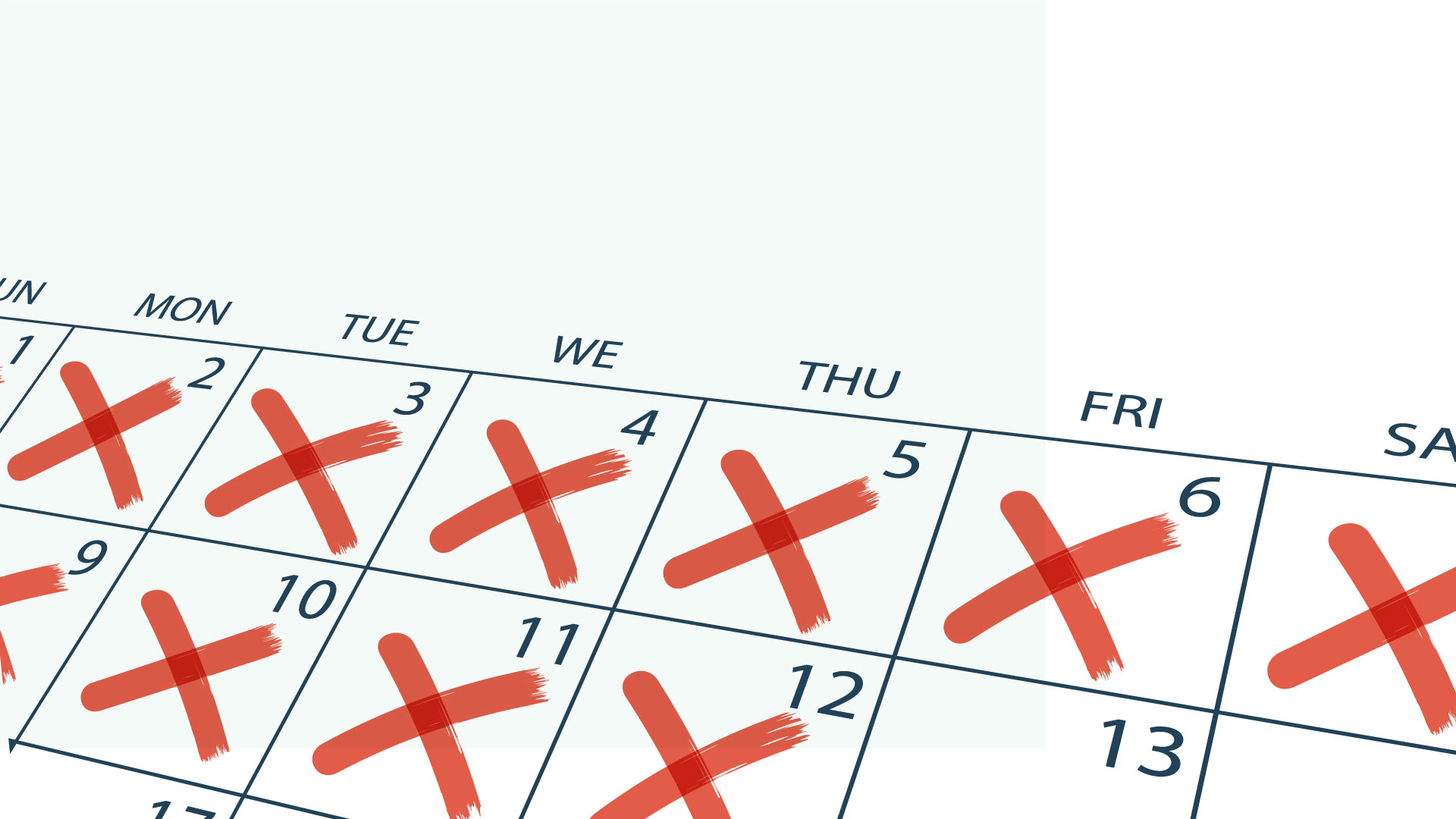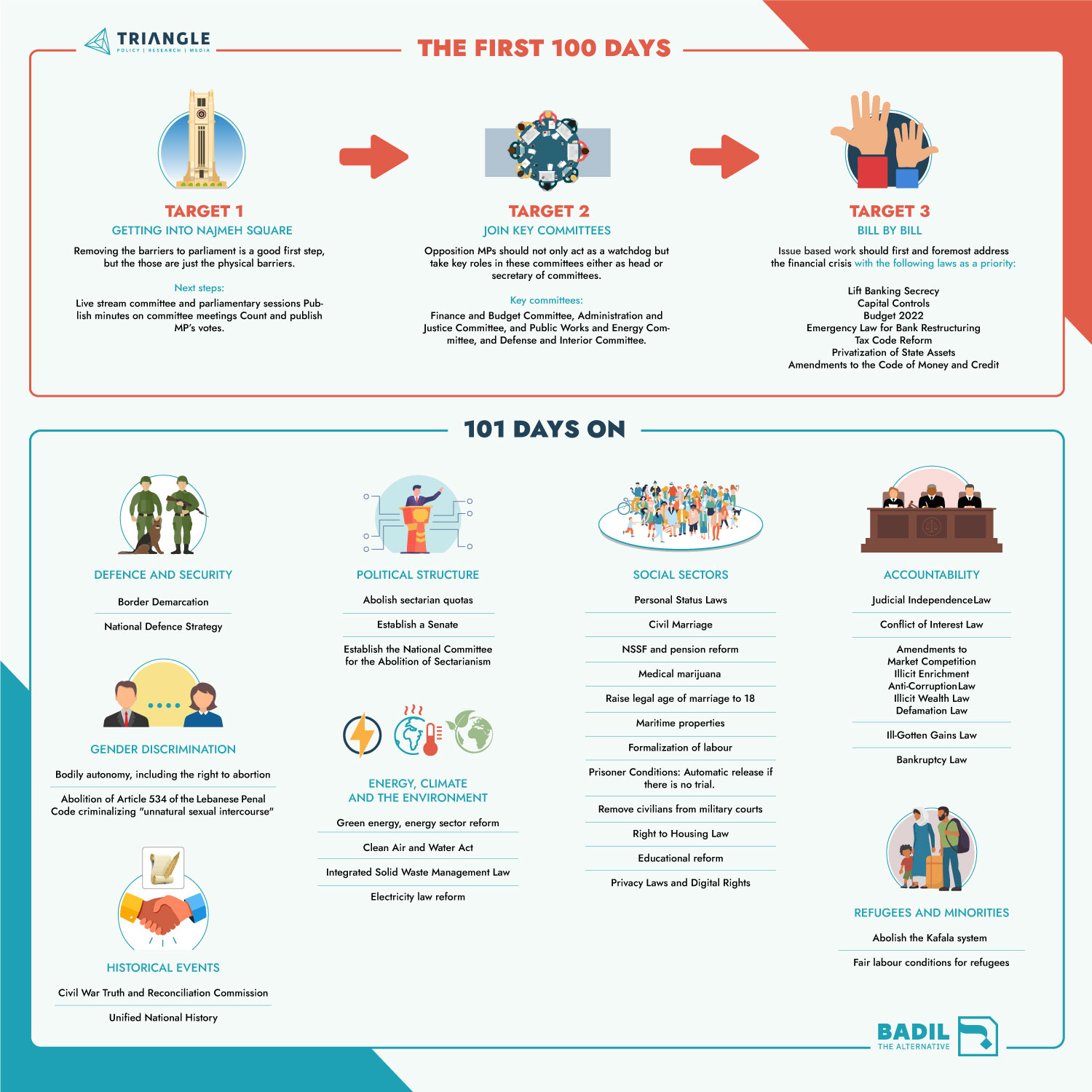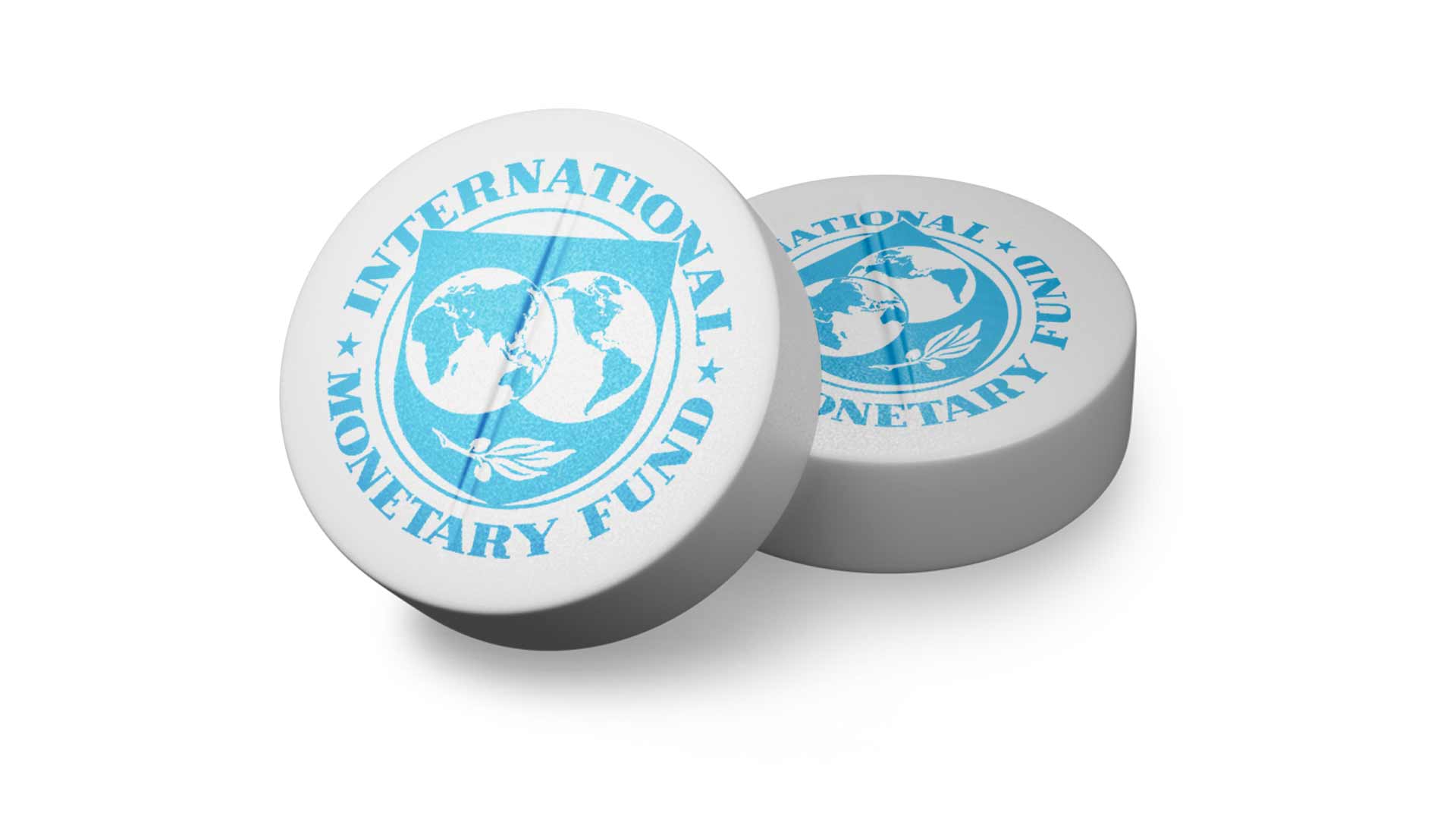GUIDING PRINCIPLES
If the election result proved anything, it was that the 2019 popular uprising has not been forgotten. That being the case, the uprising’s main demands should form the core guiding principles for opposition MPs going forward namely: accountability, socio-economic justice, and a break with the past.
Accountability plays a role on multiple levels. Accountability for the theft of bank deposits, for the August 4 port explosion, for squandering public funds, for ill-gotten gains, and for crimes committed in the Civil War, to name but a few.
The demand for social and economic justice is equally important. Opposition MPs should stand firm against the politico-banking elite that has held the country in its suffocating grip for way to long, preventing ordinary citizens from making any tangible progress in their lives
Finally, there is the legacy of the Civil War. This dark chapter in Lebanon’s history remains the elephant in the room, as warlords-turned-politicians continue to rule the country. Despite the 1991 Amnesty Law, there needs to be at least recognition of the crimes committed during this period. For without recognition there cannot be reconciliation.
STRATEGY
Facing an uphill battle, opposition MPs cannot rely solely on tactics, they a need strategy that shows they can stand by their guiding principles and represent a real opposition while not seen as obstructionists. That strategy needs to be based on four pillars: issue-based work, non-partisanship, substantive opposition, and strategic alliances.
Issue-Based Work
The Lebanese have been through too much stalemate, and the current makeup of the Parliament means no one party or alliance yet has a clear majority. In such conditions, the opposition cannot be seen as obstructive. Instead, they need to show a willingness to work on any issue, with any party—and that willingness will make the opposition stand out to gain credibility.
Issue-based work makes policy making more important and signals that opposition MPs are not just an obstructive force, but will take a pragmatic approach to reviewing, debating, and passing just laws. It will be difficult, but insisting on issue-based engagement with other parties will allow the opposition to claim victories and change the basis on which MPs negotiate and make concessions. What’s more, issue based work keeps the opposition at arm’s length from all sides of the political debate.
Non-partisanship
Indeed, opposition MPs cannot be seen as leaning to one side more than another. Falling into the dichotomous trap of debating whether sovereignty or reform are needed first, as Lebanon’s political actors do. Instead, the opposition must place themselves at an equal distance from both traditional camps. As a start, opposition to Hezbollah’s arms needs to be counterbalanced with opposition to the banking sector’s agenda and obstruction of a just end to the financial crisis—failure to send the right signals on either issue risks the opposition being tarred with the wrong brush every time.
Substantive Opposition
A national unity government only spells disaster when it comes to implementing much-needed reforms. As seen in the past, traditional parties rarely do well in sharing power. Opposition MPs should not endorse a party-cartel government, nor boycott its formation outright. Yet as a nascent minority bloc, which will be reviled by traditional political forces, entering into a national unity government will mean the block will always be a weak player. However, the opposition would do well to be seen to enter into the horse-trading once that process starts—but not as it drags on. The opposition can balance out the need to engage with the desire to not be a minority partner in government by insisting on conditions to enter the government at the outright.
First, in proportion with their size in Parliament, any inclusion in government will require that two to three ministries should go to opposition MPs. And given their commitment to addressing the banking and economic crisis, the Ministry of Finance needs to be one of them. Second, the opposition should insist its inclusion is based on no 1/3 veto for any political bloc in the cabinet. Most likely these conditions will be unacceptable to the status quo of the traditional class, allowing the opposition to get out of the bazaar of cabinet formation and enter into substantive opposition.
Build Up Allies
As a minority opposition, the 13 MPs needs allies. With many MPs coming from a civil society background, those links are already in place and need to be bolstered alongside existing rapport with think tanks and independent media outlets.
But more work needs to be done to work with collective action groups which can form a strategic and populous ringfence of support for the opposition at key moments during the political dogfight to come. Specifically, deeper ties are needed with syndicates and labour unions in order to wrestle them away from co-option by the traditional political class. In that vein, civil service protest groups are a key entry point which can be capitalised on going forward.
THE FIRST 100 DAYS
The first 100-day plan offers a structured approach to guide MPs entering Parliament during their first critical months in office. Of course, there is much to do to help cement the opposition’s legitimacy and viability in the minds of voters. There needs to be a combination of quick wins and foundational work for the period after the first 100 days. Ideally, focus should be placed on three targets:
Target 1: Getting into Nejmeh Square
Removing the barriers that are currently blocking the way to Parliament is a good first step, but these are just physical barriers. Barricades to Parliament existed long before the erection of the concrete walls in 2019. Currently, Parliamentary committees lack transparency and work in secrecy. Lebanon’s Parliament needs serious procedural reforms that would allow for public scrutiny and accountability. Furthermore, committees rarely call on the support of experts. By opening committee sessions to public scrutiny, citizens can then participate in the democratic process, and hold their representatives accountable.
Opposition MP’s first target is to open up Parliament to the public through live streaming of committee and parliamentary sessions, publishing minutes of committee meetings, and the tally and publishing of MP votes. As it stands there is no official record keeping of MP votes in Parliament.
Target 2: Join Key Committees
Parliamentary committees play a significant role in the work of Lebanon’s governance. Committees are responsible for ensuring effective review of legislation and monitor the government’s performance. By joining key committees, opposition MP’s can insure transparency and effective review of legislation. However, opposition MPs should not only act as a watchdog but take up key roles as heads or secretaries of these committees.
Committees critical to the socio-economic reform of the country include: Finance and Budget Committee, Administration and Justice Committee, Public Works and Energy Committee, and Defence and Interior Committee.
Target 3: Bill by Bill
Several draft bills are waiting to be reviewed and debated by Parliamentary committees, particularly with regard to the financial crisis and the IMF deal. Since the Mikati cabinet has taken office, several draft bills have been sent to Parliament, with little to no action taken.
The opposition’s issue-based work should first and foremost address the financial crisis and focus on the following priority legislation: lifting banking secrecy, the capital controls law, the 2022 budget, an emergency law on bank restructuring, tax code reform, regulation of state assets, and amendments to the code of money and credit.




